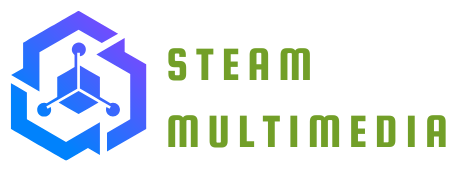Table of Contents
ToggleIn the fast-paced world of marketing, staying ahead of the game means having the right tools in your arsenal. Enter martech tools—the superheroes of the marketing universe. From automating mundane tasks to analyzing data faster than a caffeinated squirrel, these tools can transform chaos into clarity.
Key Categories Of Martech Tools
Martech tools encompass various categories that serve different marketing functions. Understanding these categories simplifies the selection of the right tools for specific needs.
Analytics Tools
Analytics tools provide insights into campaign performance and customer behavior. Platforms such as Google Analytics and Adobe Analytics track website traffic and user interaction. They offer valuable data for optimizing marketing strategies. Marketers analyze metrics like conversion rates and engagement scores. Enhanced reporting features allow for more informed decision-making. Continuous monitoring helps in adjusting campaigns effectively.
Automation Tools
Automation tools streamline marketing processes, saving time and resources. Common options include HubSpot and Marketo, which automate email marketing, social media posts, and lead generation. Task automation ensures consistency in communications and increases efficiency. These tools often come with analytics, allowing marketers to evaluate performance easily. By implementing automation, teams focus more on strategic tasks rather than repetitive ones.
Content Management Systems
Content management systems (CMS) manage website content seamlessly. WordPress and Drupal are popular CMS options, enabling marketers to publish, edit, and organize content effortlessly. They support SEO best practices alongside user-friendly interfaces. Integration with various plugins enhances functionality for marketing campaigns. A strong CMS improves user experience by simplifying content distribution.
CRM Software
CRM software helps manage customer relationships effectively. Tools like Salesforce and Zoho CRM centralize customer data for personalized communication. They track interactions and manage leads throughout the sales funnel. Marketers can leverage these insights to tailor their marketing efforts accordingly. Efficient CRM systems enhance customer satisfaction and retention, crucial for long-term success.
Popular Martech Tools List
Marketers rely on various martech tools to enhance efficiency and drive better results. Here’s a look at some popular options that stand out in the industry.
Tool 1: Overview and Features
Google Analytics excels in providing deep insights into website traffic and user engagement. This tool offers customizable dashboards, real-time data reporting, and robust tracking capabilities. Marketers use its features to analyze audience demographics, monitor acquisition channels, and measure conversion rates. Enhanced data visualization helps teams identify trends and adjust campaigns effectively. Integrations with other Google services, such as Google Ads, streamline marketing efforts and maximize ROI.
Tool 2: Overview and Features
HubSpot serves as a comprehensive marketing automation platform, offering a range of tools for inbound marketing. It enables users to create and manage email campaigns, schedule social media posts, and track performance metrics all in one place. Users benefit from a user-friendly interface and powerful analytics that allow for easy assessment of marketing strategies. Additionally, HubSpot’s CRM integration helps maintain consistent communication with leads and customers. The ability to segment audiences ensures targeted messaging, improving engagement and conversion rates.
Tool 3: Overview and Features
Salesforce stands out as a leading CRM platform focused on customer relationship management. It provides users with features to centralize customer information and facilitate communication across teams. Key functionalities include tracking sales pipelines, managing accounts, and automating task workflows. Customizable reporting helps marketers gain insights specific to their business needs. Integration with various marketing tools enhances its capabilities, allowing teams to tailor experiences according to customer preferences. Users appreciate its scalability, accommodating businesses of all sizes.
How To Choose The Right Martech Tools
Choosing the right martech tools requires careful consideration of various factors. Understanding business needs serves as the foundation for effective selection.
Assessing Your Business Needs
Identifying specific marketing goals helps clarify which tools are essential. By focusing on objectives such as lead generation, customer engagement, or data analysis, businesses can prioritize tools accordingly. Evaluating the existing marketing processes reveals gaps that martech tools can fill. It’s crucial to consider scalability and integration capabilities with current systems. Gathering input from marketing teams ensures that selected tools fit user requirements better.
Budget Considerations
Allocating a budget for martech tools demands careful examination of costs. Total expenses entail not just software licenses, but also implementation and training fees. Businesses should explore options that offer a balance between affordability and functionality. Performing a cost-benefit analysis aids in distinguishing tools that provide maximum value. Subscription models may also help manage expenses while ensuring access to necessary features.
User Experience and Support
Examining ease of use promotes better adoption of martech solutions. Usability often influences team members’ willingness to engage with new tools. Consulting user reviews and case studies provides insight into real-world experiences. Reliable customer support can make a critical difference in resolving issues efficiently. It’s important to assess the availability of training resources, as they help teams get up to speed quickly.
Martech tools are undeniably transformative in today’s marketing landscape. By leveraging the right tools, marketers can enhance their strategies and drive measurable results. The diverse categories of tools—from analytics to automation—offer unique advantages that cater to various business needs.
Selecting the appropriate martech solutions requires careful consideration of specific goals and existing processes. With the right approach, businesses can streamline operations and foster deeper customer relationships. Embracing these tools not only boosts efficiency but also positions organizations for sustained success in an ever-evolving market.




